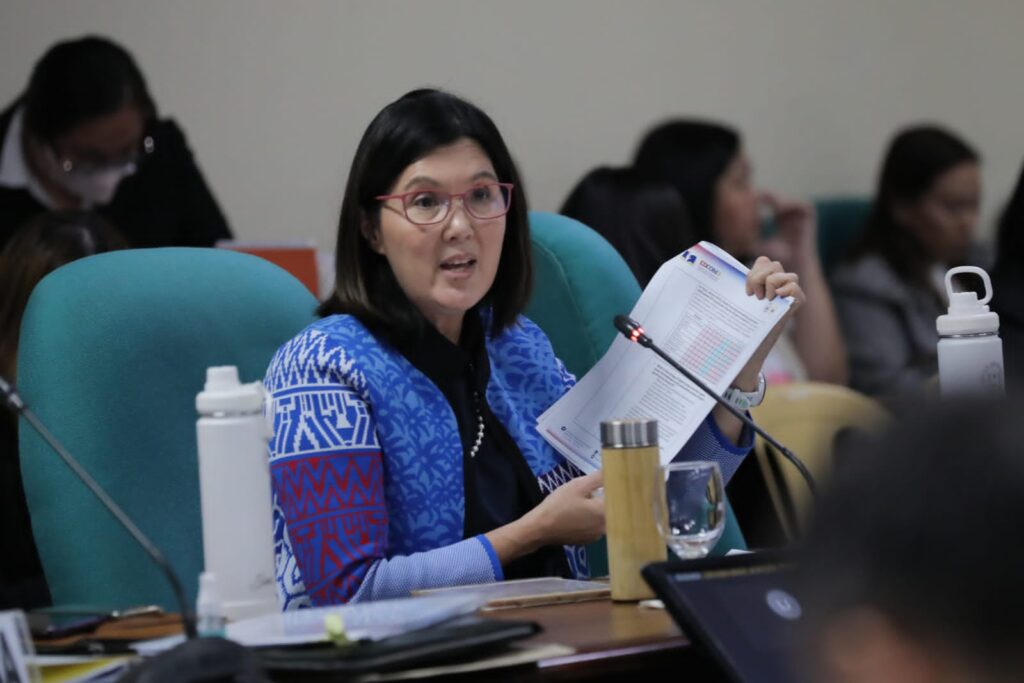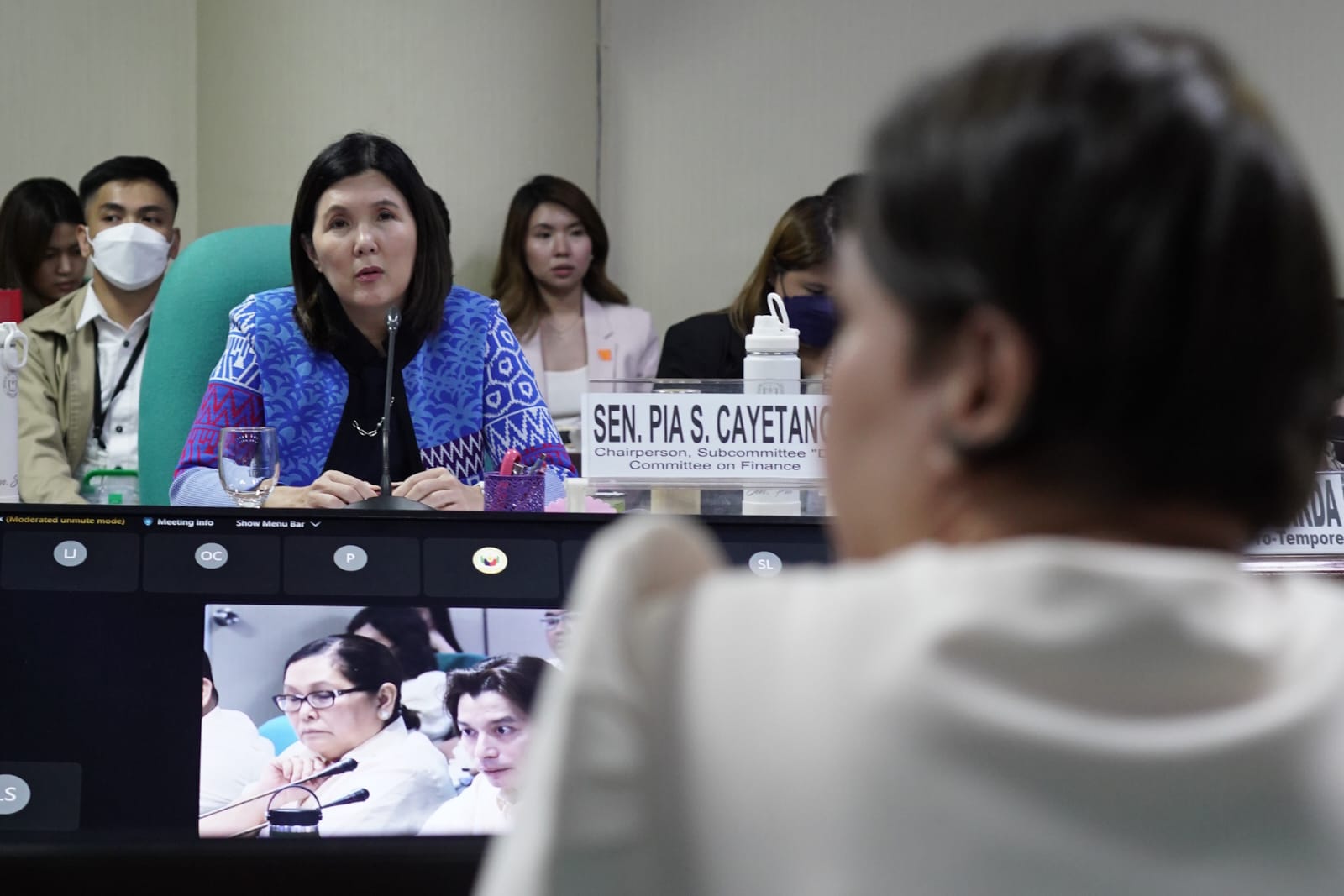Reposted news release from the Education Commission 2 (EDCOM 2)*
Senator Pia Cayetano on Monday urged the Department of Education to explore ways to deliver learning materials to students.
“Since 2012, the only grade levels that had complete textbooks were Grades 5 and 6…Otherwise, no textbooks ang [Kinder], [Grades] 1-3 – talagang none – very few sa Grade 10, and none in Grade 7”, Cayetano said during the Senate committee on finance on the department’s proposed 2024 budget.
Cayetano, who chairs Sub-Committee D on the budget of health and education sectors, is also a Commissioner of the Second Congressional Commission on Education (EDCOM 2). She cited EDCOM 2 findings sourced from the DepEd Bureau of Learning Resources.
In its consultations with teachers, EDCOM 2 found that many schools still lack access to textbooks and other learning resources. Discussions with the Department of Education and an analysis of their reports on procurement show that this insufficiency is largely driven by the issues in the procurement of textbooks.
One major cause of delay is the previous practice of procuring manuscripts separately from printing and delivery services. This is further exacerbated by the high cost of materials; suppliers’ failure to meet the deadline in printing and delivery; and the limited number of bidders or publishers who are participating in the bidding process.
Proposed budget only covers K, 1, 4, and 7
“Obviously, we want to have a bigger textbook budget, but the textbook budget that you are referring to, which is P12 billion, is only meant to cover K, 1, 4, and 7 for 2024 implementation”, Cayetano noted.
“Which means, Grades 2, 3, 5, 6, 8, 9, and 10 [in the current curriculum], wala pa sila sa schedule ng implementation ng books – because this is a staggered implementation, she continued.
“So in the meantime, walang books ito, [they have modules], precisely why you probably were saying we have to resort to blended learning and so on and so forth”, she said, addressing DepEd officials.
Digitization a solution
Cayetano suggested digitizing textbooks as a solution. “You should really study at this point the option of digitizing these books…it is a sustainable model dahil yung number 1, yung papel, hindi tayo gagastos ng papel, number 2 yung errors should be easier to change digitally, and the corrections and editing should be much faster”, she said.
“There’s no physical way, kahit doblehin ata ang budget niyo, hindi niyo mafa-fastrack ang textbooks”, she continued.
Textbook procurement an EDCOM priority
In EDCOM 2 consultations with DepEd, at its fastest, procurement of textbooks requires at least 6 months for production, 3 months for printing, and 3 months for distribution. Using this timeline, the Department is already delayed for SY 2024.
In its June 1 meeting with the Bureau of Learning Resources and the Government Procurement Policy Board (GPPB), the Commission noted that the Department should explore pre-qualification of textbooks.
“Private schools have been doing pre-selection of books for years and if it’s been working for them, why can’t public schools do the same?”, EDCOM 2 Co-Chairperson Senator Sherwin Gatchalian said.
During the same meeting, Jaymar Bareng, procurement management officer of the Government Procurement Policy Board, said they were open to studying the Manual of Procedures for the Procurement of Manuscripts for Textbooks and Teacher’s Manuals, which serves as the DepEd’s guide in the procurement process.#
*EDCOM 2 is the Congressional body created through RA11899, tasked to undertake a comprehensive national assessment and evaluation of the performance of the Philippine education sector. In the next three years, it will also recommend legislation that aims to address the education crisis in the country.



Leave a Reply